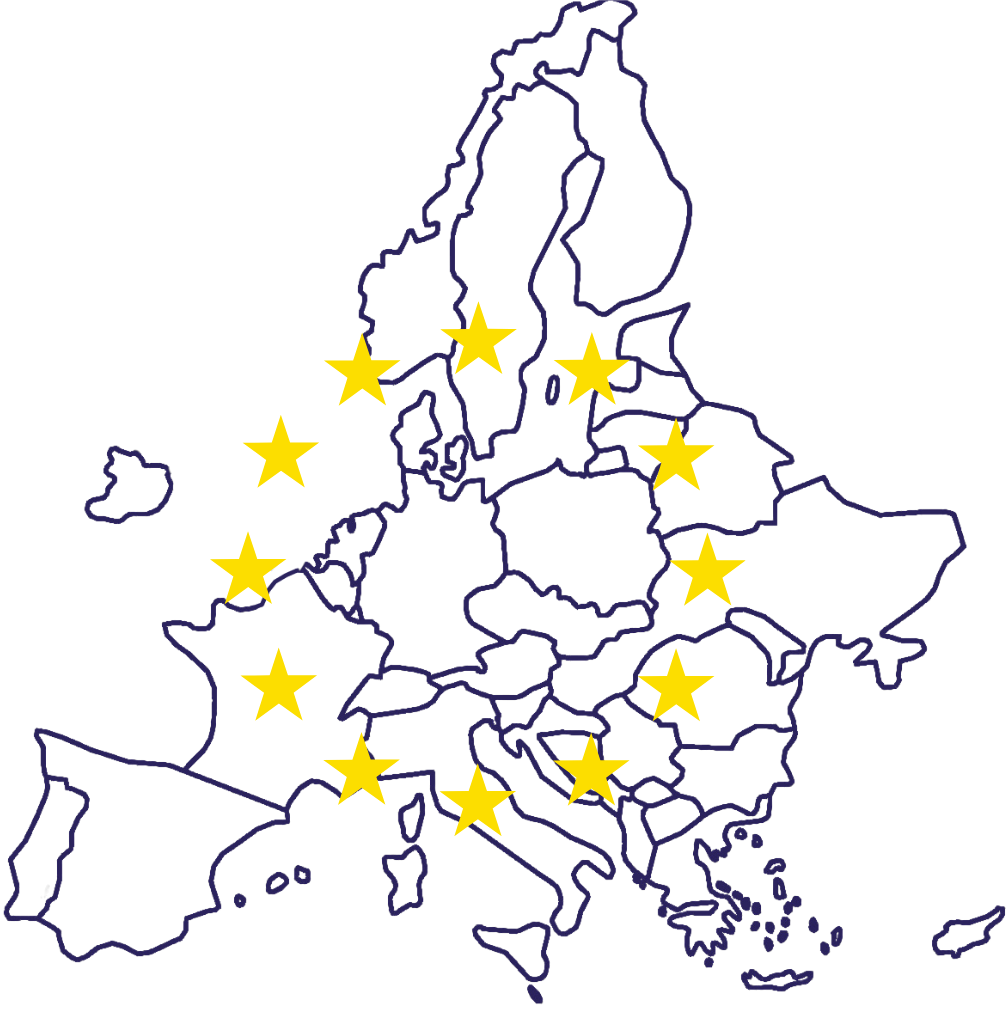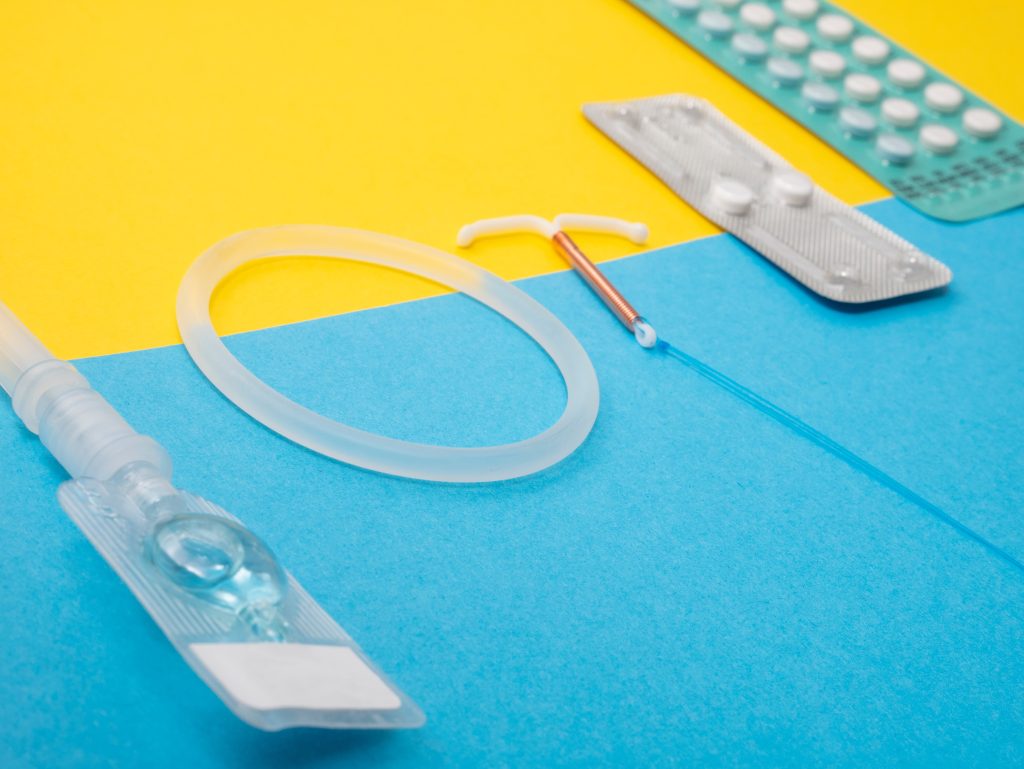Country Profiles
EuropeanInstitutions

Context
According to preliminary figures published by the OECD DAC, the EU and its 27 Member States continued increasing their Official Development Assistance (ODA) for partner countries around the world to 70.2 billion Euros in 2021. This is the equivalent of 0.49% of collective Gross National Income (GNI). As a result, the EU and its Member States confirm their position as the world’s leading donor, providing 43% of global ODA. The ODA provided by EU institutions (the European Commission – EC -and the European Investment Bank – EIB) increased by 1.0 billion Euros overall in 2021.
Policies & funding
The EU Institutions continuously commit to the promotion of sexual and reproductive health and rights (SRHR) in major policies and international cooperation and development documents. Most recently, in October 2022, the European Commission adopted its Youth Action Plan (YAP), which will be the guiding policy framework to promote youth engagement and empowerment as part of the EU’s external action. The YAP specifically recognises SRHR as one of the key priority areas for youth empowerment, with a commitment to ‘’promote universal access to youth-friendly SRHR, with quality and affordable services and information, including comprehensive sexuality education, HIV and AIDS prevention and treatment, focusing on adolescent girls, marginalised and LGBTIQ young people’’.
Strong commitments to SRHR are also included in the EU’s Gender Action Plan (GAP III), which provides the framework to promote gender equality through EU and EU Member States’ external action. The GAP III, adopted in November 2020, includes SRHR as one of the key thematic areas for the promotion of gender equality, with specific objectives and indicators. In addition, GAP III reaffirms the EU’s commitment to dedicate 85% of external cooperation projects to the promotion of gender equality as a principal or significant objective, with a new commitment for all EU Delegations in partner countries to implement at least one action with gender equality as principal objective.
The EU’s Multi-Annual Financial Framework (2021 – 2027) attributes 79.5 billion Euros to the ‘Neighbourhood, Development and International Cooperation Instrument /Global Europe (NDICI/GE), which is the main instrument for EU international cooperation. The NDICI/GE, adopted in 2021, and its legal basis includes specific references to SRHR as an important area to be funded, thereby providing a solid basis for the future implementation of EU programmes on SRHR. These commitments are also reflected in the programming of the funding: in Sub-Saharan Africa, the Multiannual Indicative Programmes (MIPs) of 21 countries include references to Sexual and Reproductive Rights. Other countries, might not have prioritised SRHR specifically, but include references to SRHR-related issues such as human development, Universal Health Coverage, gender equality and women’s empowerment (GEWE), and the fight against sexual and gender-based violence (SGBV).
In addition to the inclusion of these commitments in the NDICI/GE and the important references to SRHR and related issues in the MIPs, the EU is stepping up its coordination with Member States and partner countries, by embracing a new “Team Europe” approach and implementing “Team Europe Initiatives” (TEIs). Starting as a reaction to COVID-19, TEIs are an enhanced tool to design and carry out international development policies and programmes, and they will play an important role in the programming and implementation of the new NDICI/GE. They envisage greater coordination between EU Institutions and Member States, to improve consistency and coherence of their external action. A TEI on SRHR in sub-Saharan Africa, with a particular focus on adolescent girls and young women, brings together the EC, Belgium, Czech Republic, Denmark, Finland, France, Germany, Ireland, Luxembourg, the Netherlands and Sweden and three African Regional Economic Communities: the East African Community (EAC), the West African Health Organization (WAHO) of the Economic Community of West African States (ECOWAS), and the Southern African Development Community (SADC). Launched in the end of 2022, the TEI on SRHR aims amongst others to strengthen political commitments and capacities (joint education and health sector responses for SRHR outcomes), to strengthen regional mechanisms to address supply-side constraints and improve access to quality assured SRHR commodities, to strengthen advocacy and social accountability of regional commitments on SRHR (including data availability).
Furthermore, with regards to access to vaccines, the EU jointly with Member States has set up the ‘COVAX Facility’, a global initiative bringing together governments and manufacturers to ensure COVID-19 vaccines reach those most in need. Team Europe is investing over 3 billion to help secure 1.8 billion doses of vaccines for 92 low and middle-income countries.

Launched in the end of 2022, the TEI on SRHR aims amongst others to strengthen political commitments and capacities (joint education and health sector responses for SRHR outcomes), to strengthen regional mechanisms to address supply-side constraints and improve access to quality assured SRHR commodities, to strengthen advocacy and social accountability of regional commitments on SRHR (including data availability).
Furthermore, with regards to access to vaccines, the EU jointly with Member States has set up the ‘COVAX Facility’, a global initiative bringing together governments and manufacturers to ensure COVID-19 vaccines reach those most in need. Team Europe is investing over 3 billion to help secure 1.8 billion doses of vaccines for 92 low and middle-income countries.
Total disbursed funding
According to the Countdown 2030 tracking, in 2021 the EU Institutions disbursed more than 78 million Euros to sexual and reproductive health and family planning (SRH/FP). This amounts to about 0.43% of the EU’s total ODA spending. If other essential interventions beyond SRH/FP are also accounted for, such as projects related to the promotion of comprehensive sexuality education and LGBTI+ rights, HIV prevention and SGBV, the EU’s ODA expenditure for SRHR amounted to 372 million Euros in 2021, equivalent to 2.04% of its total ODA. This is mainly due to contributions to the Global Fund to Fight AIDS, Tuberculosis and Malaria (GFATM).
Earmarked multilateral funding
European Institutions provide a significant amount of their funding for health and SRHR to multilateral institutions through specific earmarked projects. UNFPA is a recurrent recipient of EU funding, having received more than 38 million Euros in 2021 for SRHR, about 11 million of which were specifically allocated to SRH/FP. While the EU has not supported the UNFPA’s Supplies Partnership Programme in 2020 or 2021, it announced a contribution of 45 million over the course of the next six years in September 2022. Other EU supported multilaterals that are of relevance to SRHR include UNICEF (almost 5 million Euro), UNDP (more than 90 million Euros to the Spotlight Initiative to fight violence against women and girls in the ACP countries and in Latin-America), and UNWOMEN (more than 4 million Euros to promoting gender equality and ending gender-based violence).
Funding to specific organisations and initiatives
European Institutions provide a significant amount of their funding for health and SRHR to multilateral institutions through specific earmarked projects. UNFPA is a recurrent recipient of EU funding, having received more than 38 million Euros in 2021 for SRHR, about 11 million of which were specifically allocated to SRH/FP. While the EU has not supported the UNFPA’s Supplies Partnership Programme in 2020 or 2021, it announced a contribution of 45 million over the course of the next six years in September 2022. Other EU supported multilaterals that are of relevance to SRHR include UNICEF (almost 5 million Euro), UNDP (more than 90 million Euros to the Spotlight Initiative to fight violence against women and girls in the ACP countries and in Latin-America), and UNWOMEN (more than 4 million Euros to promoting gender equality and ending gender-based violence).
Key documents
- Funding and policy factsheet 2021-2022-EU.pdf
- Negotiated text of the Post-Cotonou Agreement
- Regulation of the European Parliament and of the Council establishing the Neighbourhood, Development and International Cooperation Instrument – Global Europe (NDICI/GE)
- Joint Communication ‘EU Gender Action Plan (GAP) III – An ambitious Agenda for Gender Equality and Women’s Empowerment in EU external action
- European Parliament own-initiative report on GAPIII
- Presidency Conclusions on the Gender Action Plan (GAP) III 2021-2025 – An ambitious Agenda for Gender Equality and Women’s Empowerment in EU external action
- Joint Communication ‘Towards a comprehensive Strategy with Africa’
- Council Conclusions on Africa
- Communication on the Global EU Response to COVID-19
- European Commission, EU Aid Explorer
- Council Conclusions on Human Development
- Council Conclusions on Team Europe
- Council Conclusions on Water in EU’s external action
- Council Conclusions on Youth in external action
